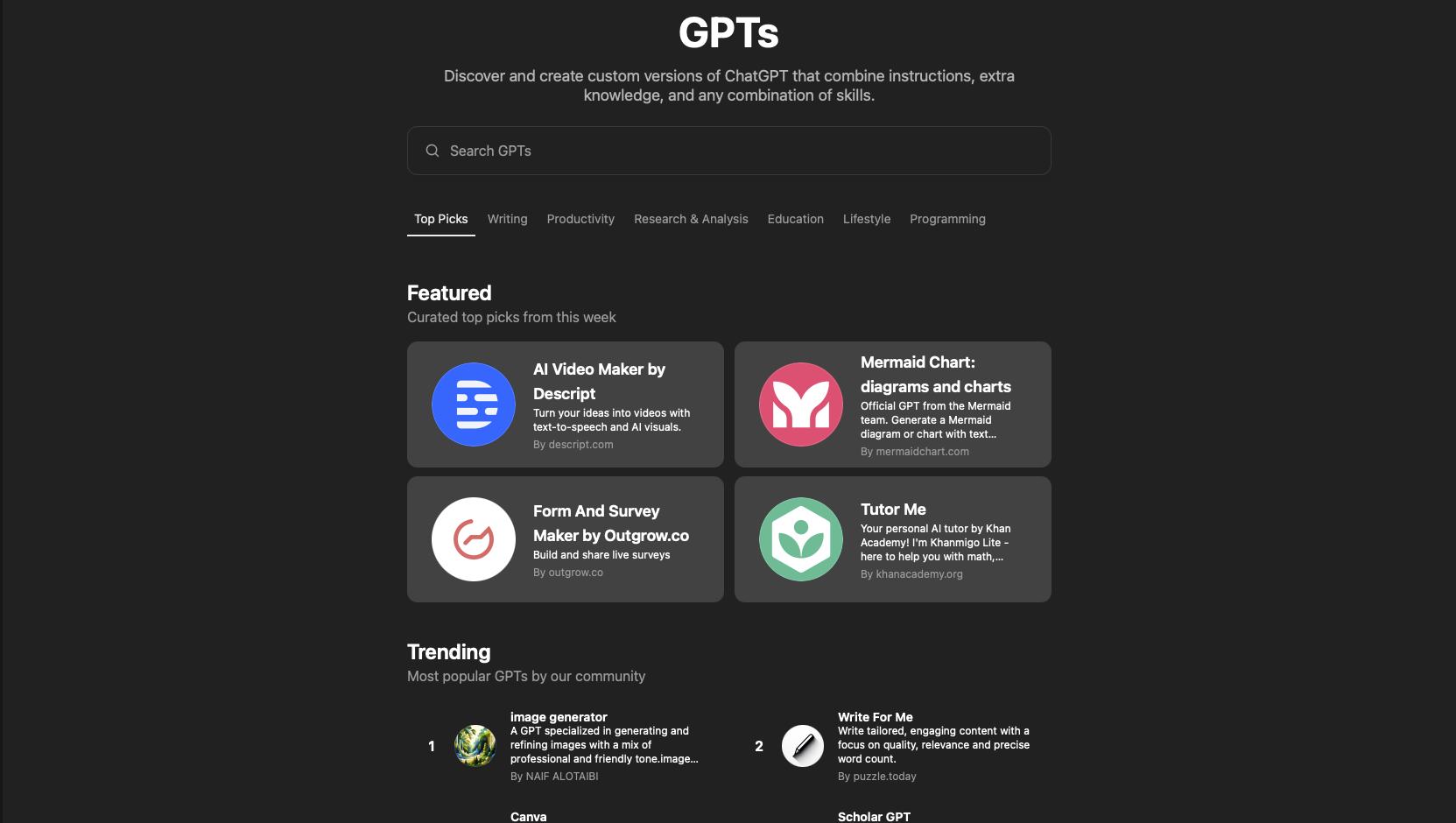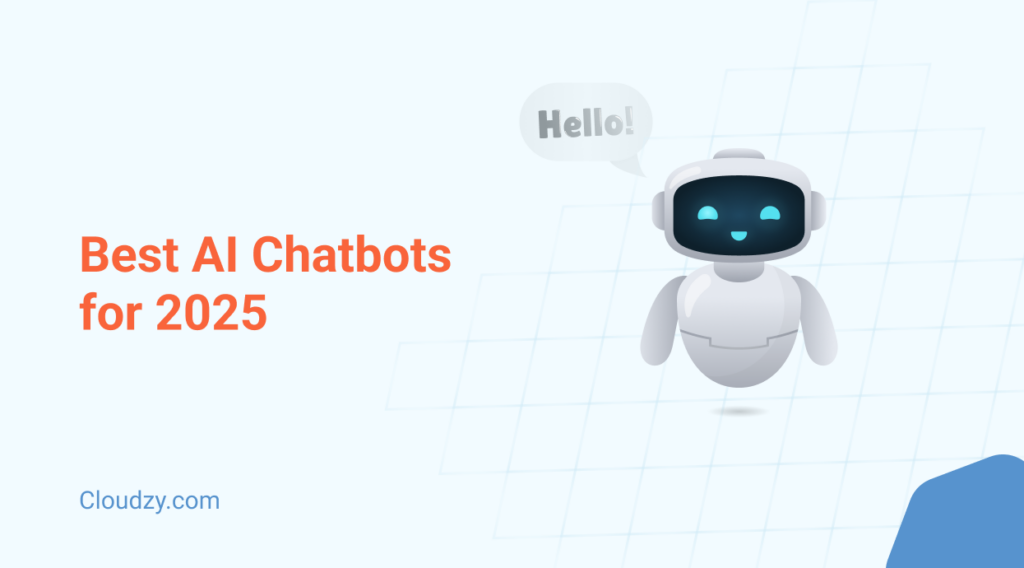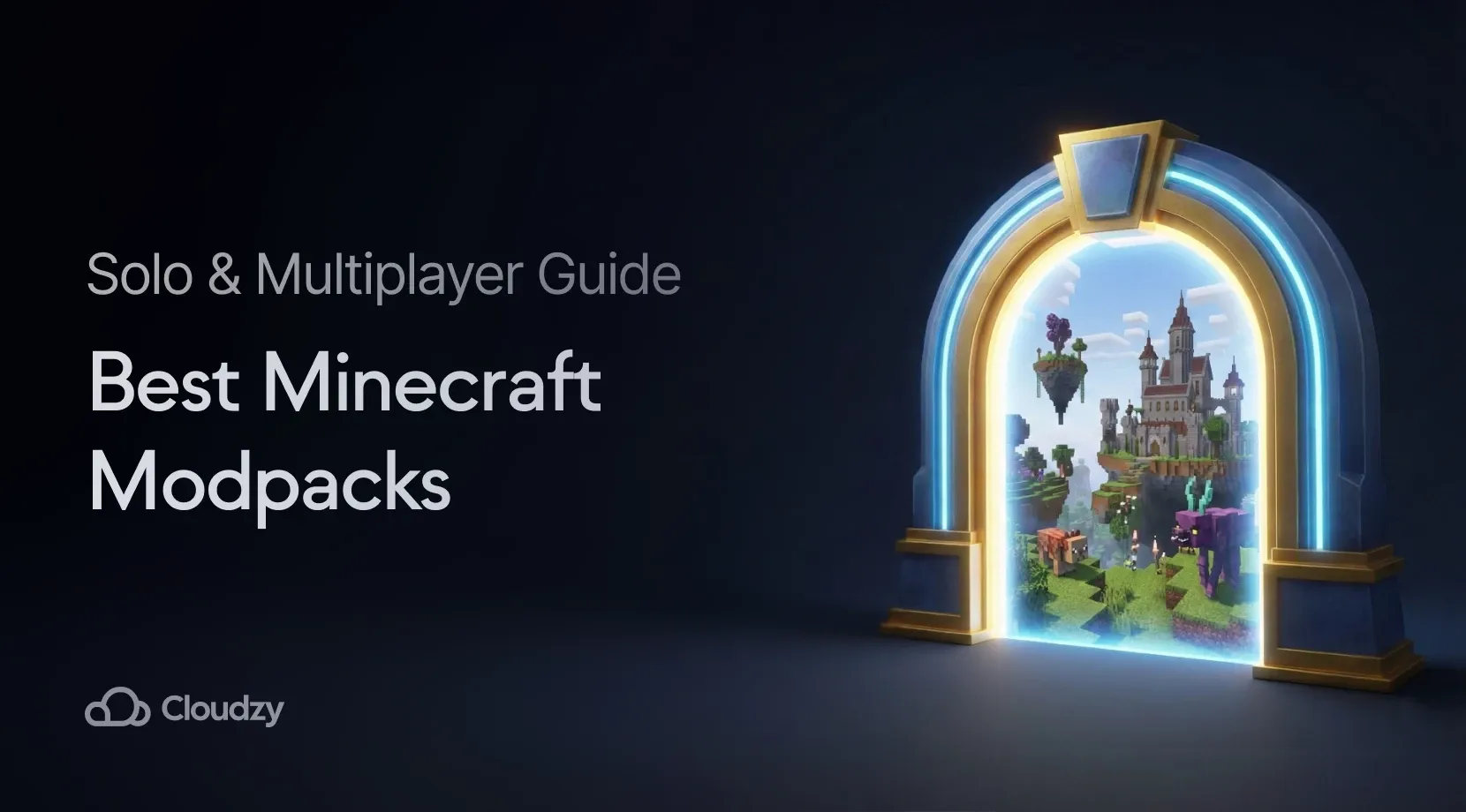When OpenAI introduced ChatGPT to the public in November 2022, it quickly became a widespread phenomenon, with possibilities that truly felt endless. Through continuous development, ChatGPT and other AI tools have become so accurate and helpful that the world before these artificial intelligence platforms now feels like a distant, unfamiliar memory.
Although Sam Altman once promised ChatGPT would stay open-sourced, it turns out the costs of keeping it running were a bit too much for that dream. So, now we get a subscription model—because even AI needs to eat. That, along with other factors, gave rise to AI ChatGPT competitors and many alternatives to ChatGPT, each targeted at different audiences.
Although OpenAI’s ChatGPT and Sora are known as some of the best AI tools available to the public, it’s not uncommon to see ChatGPT similar tools that can exceed in accuracy in some niche areas. More boldly, some competitors, such as DeepSeek, claim to offer even better reasoning tools for free. This article offers a list of ChatGPT competitors that you need to check out in 2025, provides comprehensive comparisons, and tells you which one to opt for based on the use case, budget, and needs.
But before we do that, it is critical to know why ChatGPT has gained such a seemingly impenetrable reputation as the king of AI chatbots, what strengths set it apart, and what limitations or challenges accompany its widespread use.
A Brief Overview of Open AI’s ChatGPT
Considering ChatGPT’s platform’s wide range of powerful services and possibilities, it’s no surprise that it has become the go-to AI chatbot for many users with different intents. Over time, OpenAI integrated many features, such as GPT Apps that bring you templates for making charts, videos, and surveys, to keep its platform as the most cutting-edge AI tool for all use cases. That said, it is important to mention that ChatGT also comes with certain drawbacks.

Some of the key features of ChatGPT are:
- Versatility: ChatGPT can serve as a research assistant, content generator, coding tool, and even an entertainment source.
- Advanced Models: The free version uses GPT-3.5, while the premium subscription offers access to the superior GPT-4 model.
- API Integration: Developers can integrate ChatGPT into their applications via OpenAI’s API, which has been a game-changer for businesses.
While powerful, ChatGPT does have some limitations:
- Subscription Model: Access to GPT-4 requires a paid plan. If you’re going for the Pro plan, it can cost as much as $200 a month.
- Real-time Data: It cannot fetch or analyze real-time information from the web, which can limit its usefulness for up-to-the-minute queries.
This is where AI ChatGPT competitors come into play that either focus on specific features or provide more reasonable subscription plans (or none) to attract users looking for alternatives to ChatGPT. Let’s take a look at some of the best ChatGPT competitors and see how they stack up against this giant.
 Start Blogging
Start Blogging
Self-host your WordPress on top-tier hardware, featuring NVMe storage and minimal latency around the world — choose your favorite distro.
Get WordPress VPS
Best ChatGPT competitors in 2025
IMG DESCRIPTION: picture containing logos of all of the mentioned platforms under this subhead and putting a “v.s” sign and a big ChatGPT icon against them. As ChatGPT continues to develop and find its way more and more into people’s workflows, other companies and organizations are trying to capitalize on this newly found market by introducing their language-learning models and chatbots.
Google Bard
Powered by Google’s Language Model for Dialogue Applications (LaMDA), Google Bard is one of the most significant alternatives to ChatGPT in 2025. It launched about a year after chatGPT in 2023. Although it might not be able to do everything as accurately as ChatGPT, it has some key features, like Google’s search capabilities, that create a fairly reliable and diverse conversational AI chatbot.
Advantages of using Google Bard:
- Real-Time Web Access: Pulls up-to-date information directly from the web, useful for current events-related queries.
- Multilingual Support: Supports multiple languages for a global audience.
- Google Integration: Seamlessly integrates with Google’s suite of tools like Gmail, Google Calendar, and Docs.
Challenges that Come with Google Bard:
- Still refining its conversational depth compared to ChatGPT.
- May not always provide as sophisticated or detailed responses as ChatGPT in complex discussions.
Google Bard is Best For:
- Users who need real-time information or are heavily integrated into the Google ecosystem.
- General consumers and developers looking for a robust AI assistant with web access.
2. Anthropic’s Claude
In today’s day and age, cybersecurity is of utmost importance, especially if you’re dealing with sensitive data within your organization. Claude is a competitor that focuses on ethical AI and ensuring safety in conversations. Developed by Anthropic, Claude is designed to offer transparency, reduce harmful outputs, and create safer AI interactions.
Advantages of Using Anthropic’s Claude:
- Safety and Ethics Focus: Built to minimize harmful outputs and enhance transparency.
- Human-like Conversations: Delivers highly empathetic and natural responses, ideal for sensitive topics.
- Robust Moderation: Designed to reduce the risk of generating harmful or biased content.
Common Challenges for Anthropic’s Claude Users:
- Less technically advanced than models like GPT-4 in handling deep reasoning or highly specialized tasks.
- Primarily focused on safety and may not offer the same flexibility in responses as other competitors.
Anthropic’s Claude is Best For:
- Businesses and organizations prioritize safe, ethical AI.
- Use cases like mental health support, customer service, and education where empathy is critical.
3. Bing Chat
For Bing Chat, Microsoft integrates openAI’s models into its search engine. You could say it’s another version of ChatGPT but within the Microsoft ecosystem.
Bing Chat’s Most Advantageous Features:
- Real-Time Data Access: Can fetch up-to-the-minute information from the web, ideal for answering current event queries.
- Microsoft Integration: Seamless integration with Microsoft’s productivity tools like Word and Excel.
- Search-Driven Responses: Uses Bing’s search capabilities to enhance its knowledge base.
Drawbacks of Using Bing Chat:
- Limited in-depth conversational abilities compared to ChatGPT in more complex scenarios.
- Primarily designed for users already embedded in Microsoft’s suite of tools, which could be a barrier for non-users.
Bing Chat is Best For:
- Microsoft users who need AI-powered assistance integrated with tools like Word, Excel, and PowerPoint.
- Professionals seeking real-time, data-driven insights.
4. Mistral AI
One of the key features that sets Mistral AI apart from the rest of the competition is its highly customizable platform, It allows users to adjust large language models based on specific use cases for enhancing AI’s behavior and responses within a certain framework.
Mistral Al’s Best Features:
- Open-Source Models: Provides users with access to customizable language models.
- Specialization: Allows for fine-tuning AI for specific tasks, like healthcare or law.
- Customizable Architectures: Users can adjust models for performance or specific needs.
Challenges and Drawbacks of Using Mistral AI:
- Requires technical expertise to customize and deploy models. So, if you’re looking for no-code AI models, it’s Mistral AI is not your cup of tea.
- More suited for developers than casual users due to its open-source nature.
Mistral AI is Best For:
- Developers and businesses who need highly customizable AI models.
- Specialized industries require tailored AI for specific tasks or use cases.
5. Cohere
Another enterprise-grade LLM-based AI, Cohere is specifically designed with scalability in mind. That said, it also focuses on easy integration into business workflows.
Best Features of Cohere:
- Enterprise-Grade Models: Optimized for large-scale applications and business needs.
- Integration with Existing Tools: Offers APIs to integrate into business workflows seamlessly.
- Customizable Models: Ability to fine-tune models to meet specific enterprise needs.
Drawbacks of using Cohere:
- Primarily geared toward enterprise users, making it less accessible for individual or casual use.
- May not be as flexible or easy to use for smaller businesses or developers outside of large-scale environments.
Cohere is Best For:
- Large businesses looking for scalable AI solutions for customer service, marketing, or content generation.
- Enterprises that need a custom language model integrated into existing operations.
6. Jasper AI
Jasper AI predominantly focuses on providing a platform for bloggers, marketers, and businesses needing high-quality written content. It is a fairly good tool for small businesses and startups who want to integrate AI.
Key Features and Advantages of Jasper AI:
- Content Creation: Specializes in generating blog posts, articles, social media content, and more.
- SEO Integration: Offers tools to optimize content for search engines.
- Templates for Marketing: Includes a variety of templates for different types of content creation.
Common Challenges of Using Jasper AI:
- Primarily focused on content generation, so it may not excel in general AI conversations.
- Less suited for specialized tasks like coding or deep technical conversations.
Jasper AI is Best For:
- Marketers and content creators who need assistance with writing, SEO optimization, and social media content.
- Businesses focusing on high-volume content creation.
7. LLaMA (Meta)
In the world of ChatGPT similar products, Meta is fairly new. However, their LLaMA (Large Language Model Meta AI) offers powerful language models for a variety of applications.
LLaMA’s Best Features:
- Open-Source Access: Provides free access to its language models, enabling customization.
- Efficiency: Optimized for performance and scalability, making it suitable for both research and deployment.
- Cutting-Edge Transformer Models: Based on advanced transformer architectures.
Weaknesses and Challenges of Using LLaMA:
- Requires technical expertise to fully leverage its capabilities.
- Primarily aimed at developers and researchers, which may limit its appeal to general users.
Best For:
- Researchers and developers looking for an open-source, customizable AI solution.
- Large-scale deployments where efficiency and scalability are key.
Which AI Chatbot is Right for You?
With so many ChatGPT competitors and alternatives to ChatGPT available, choosing the right AI tool depends on your specific needs. If you need real-time data, Google Bard and Bing Chat (another version of ChatGPT integrated with Microsoft) are excellent choices, as they excel at pulling live web insights.
For those prioritizing ethics and safety, Anthropic’s Claude stands out as a top ChatGPT alternative, offering empathetic and secure interactions. If customization is your focus, Mistral AI and Meta’s LLaMA provide open-source flexibility, making them ideal for developers and niche industries. Businesses seeking enterprise-grade solutions will find Cohere to be a strong ChatGPT competitor, designed for scalability and integration.
For content creation, Jasper AI is the go-to ChatGPT similar tool, specializing in SEO-friendly marketing and blog content.
Below, you can find a list that summarizes all the features of the aforementioned AI platforms.
| AI TOOL | Key Features | Weaknesses | Best Use Case |
|---|---|---|---|
| Google Bard | Real-time web access, multilingual, Google integration | Less conversational depth vs. ChatGPT | Real-time queries, Google ecosystem users |
| Claude | Ethical AI, empathetic responses, moderation | Limited technical reasoning | Safety-first industries, mental health |
| Bing Chat | Real-time data, Microsoft integration | Limited depth in complex tasks | Microsoft users, professionals needing data |
| Mistral AI | Open-source, customizable, task-specific | Requires coding skills | Developers, niche industries (healthcare/law) |
| Cohere | Enterprise-scale models, seamless APIs | Geared toward large businesses | Customer service, marketing automation |
| Jasper AI | SEO-optimized content, marketing templates | Narrow focus beyond writing | Marketers, bloggers, content creators |
| LLaMA (Meta) | Open-source, efficient transformer models | Technical expertise required | Researchers, scalable AI deployments |
From ChatGPT similar products like Bing Chat to specialized AI ChatGPT competitors like Jasper AI, the market offers robust options for every use case. Depending on what you prioritize, the right option can differ for you. Nevertheless, this list of ChatGPT competitors ensures you’ll find the perfect fit among the best ChatGPT alternatives of 2025.
If you’re planning to maximize the performance of your AI workflows, especially when running large models like ChatGPT or its alternatives, choosing the right hosting solution is critical. One highly recommended option is a ChatGPT VPS that offers dedicated resources, high-speed performance, and scalable environments tailored for AI tasks. Services like Cloudzy’s ChatGPT VPS provide an optimized platform where you can deploy, fine-tune, and run AI models seamlessly — whether you’re using ChatGPT itself, experimenting with open-source models like LLaMA, or customizing your own solution. With low-latency connections and robust security, it’s a smart choice for developers and businesses looking to get the most out of their AI projects.
Final Verdict
When exploring the best ChatGPT alternatives, your choice ultimately depends on your specific needs. If you want a general-purpose conversational AI with powerful capabilities, ChatGPT remains a top contender. However, if you require more specialized features like real-time data access, safety, or content generation, platforms like Google Bard, Anthropic’s Claude, and Jasper AI offer compelling alternatives. If you’re a developer seeking open-source models or customization, Mistral and LLaMA could be the ideal fit. As the AI landscape continues to evolve, it’s essential to stay updated on the newest tools, features, and updates from both ChatGPT and its competitors.




2 thoughts on “Best AI Chatbots for 2025: ChatGPT Competitors You Need to Check Out”
what is the Chat GPT competitors in the field of programming?
Hi Sarah.
This list may be useful for you. Of course, I tried to introduce the best ChatGPT alternative based on the application.
GitHub Copilot: Code completion and automatic programming toolCodeium
PolyCoder: Code review and analysis
AskCodi: Natural language processing, code search, and explanation
OpenAICodex: Powering the underlying technology for some AI coding assistants